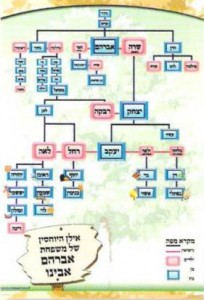Jun 21, 2016
Posted by Scripture Solutions on Jun 21, 2016 | Comments Off on Do You Think Before You Act or Just Act?
Proverbs 13:16
In everything the prudent acts with knowledge, but a fool flaunts his folly.
כָּל־ע֭֭רוּם יַעֲשֶׂ֣ה בְדָ֑עַת ו֝֝כְסִ֗יל יִפְרֹ֥שׂ אִוֶּֽלֶת׃
In a San Francisco Examiner (7/7/93) report the California State Automobile Association claims office received a package by Federal Express. The unknown contents were bundled in a Fruit Loops cereal box.
Workers quickly became suspicious. Security guards called the police, and about 400 office workers were evacuated from the building. The bomb squad soon arrived on the scene.
The Fruit Loops cereal box was “neutralized” with a small cannon, and its contents were blasted into the air. The bomb squad, however, found no explosives. Inside the suspicious package was $24,000 in cash. The box contained bundles of $20 bills, $1,000 of which were destroyed in the blast.
The response of the SF police was understandable. A suspicious package arrived that had to be dealt with. Only after the cereal box was neutralized was the identity of the contents determined.
In our world it is necessary to use caution, but acting without more thorough investigation can destroy things more valuable than money.
In Proverbs 13:16 Solomon contrasts the wisdom of taking time to think before one takes action with the foolishness of taking active steps without thinking through one’s options. (more…)
Jun 20, 2016
Posted by Scripture Solutions on Jun 20, 2016 | Comments Off on Proverbs for Living Skillfully
Automaker Henry Ford hired electrical genius Charlie Steinmetz to build the generators for his factory. One day the generators came grinding to a halt, and the technicians couldn’t find the problem. Ford called Steinmetz, who tinkered with the machines for a few hours and then threw the switch. The generators whirred to life–but Ford got a bill for $10,000 from Steinmetz. Flabbergasted, the rather tightfisted car maker inquired why the bill was so high.
Steinmetz’s reply: For tinkering with the generators, $10. For knowing where to tinker, $9,990. Ford paid the bill (Today in the Word, MBI, April 1990, p. 27.).
Today we place more value on our unproductive, frantic efforts than the wisdom involved in “knowing where to tinker.” After all, “knowing where to tinker” is more than a mere indicator of knowledge, but a sign of wisdom. Anyone can offer a reasonable guess regarding the nature of a problem we are facing. However, it takes wisdom to know how to apply that speculation and make a wise choice that leads to a resolve.
Nested in the midst of the books of Wisdom (Job, Psalms, Proverbs, Song of Solomon, Ecclesiastes) is a goldmine of biblical counsel for learning how to live skillfully. King Solomon’s Book of Proverbs is a much neglected biblical work that contains timeless truths that show us “where to tinker” in the major issues we face everyday.
One of the areas where followers of Jesus are forever tinkering in trying to determine God’s will. Christians spend precious time in this endless and often fruitless pursuit. Good news! The Book of Proverbs is God’s guidebook for finding His will. This is the major source in the Scriptures that reveals not merely the information about God’s will, but discloses “where to tinker.”
Once we have read and understood this work of wisdom, we will no longer need to speak of “discovering God’s will.” His plan for our lives becomes more apparent the deeper we dig within Solomon’s volume of wisdom.
Besides being a manual that enables us to understand the ways of God, the Book of Proverbs describes the qualities of spiritual character. As we will discover in Solomon’s sayings, possessing spiritual character goes hand-in-hand with grasping the will of God. (more…)
Nov 7, 2014
Posted by Scripture Solutions on Nov 7, 2014 | 2 comments
The question of forgiving one another has plagued me ever since I became a follower of Jesus. I heard many pastors and Bible teachers comment on this subject, but I did not feel they were teaching the message of the biblical text. Instead, what I was hearing was helpful common sense advice and psychological healthy ways to look at the way we should forgive one another.
Recently a good friend of mine whom I deeply respect, challenged me on my beliefs regarding the need for repentance as a condition for forgiveness.
Where I agree on this issue with my friend is that we both are in harmony that for a person to be reconciled with God, there must be a display of contriteness or repentance to experience the eternal forgiveness of God. This is designated “vertical forgiveness” because it takes place between man and God.

Forgive One Another
Where my friend and I disagree is whether or not repentance is necessary when we as humans forgive one another. If I offend another person, do I need to go to that person or have that person come to me so that I can confess my sin, state my intention to repent and ask for that person’s forgiveness?
My friend’s viewpoint is that we can forgive the other person through the forgiveness Jesus obtained for us through His death on the cross. The grace of God shown in the sacrificial death of Yeshua on the cross should so overwhelm us, that the natural outflow of our awe towards God’s love is to forgive others because God has shown His merciful forgiveness to us through His Son.
There is not always the need for repentance when there is “vertical forgiveness.” On the basis of the atonement we have in the Messiah, we forgive one another. with or without any display of repentance. In the Sermon on the Mount, in the Lord’s prayer in Matthew 6:12, we read, “And forgive us our debts, as we also have forgiven our debtors (NIV). (more…)
Jun 25, 2014
Posted by Scripture Solutions on Jun 25, 2014 | Comments Off on Did Those Six Million Jews Die for You?

The Entrance to Auschwitz
By now the controversy surrounding the Jews for Jesus video “That Jew Died for You” has simmered down. Still the strong negative reaction by the Jewish community to the JFJ evangelistic effort remains a stain on Jewish-Christian relations.
At the release of the video prior to Holocaust Remembrance Day, a Jews for Jesus press release, explained the video seeks “to help redefine the conversation and reshape views of Jesus and His relationship to the Holocaust.”
The intentions of JFJ in the production of this video were honorable and aimed to initiate conversation among Jewish people regarding Christianity’s relationship to the murder of six million Jews under the evil Nazi regime.
David Brickner, Executive Director of JFJ offered his public commentary on the video, “The horrors of the Holocaust and the 6 million who died has gnawed at the consciousness of Jews for over 60 years. We want Jewish people to understand that the sufferings inflicted at the hands of the Nazi’s were in no way based on the teachings of Jesus (underlining mine). In fact, he suffered and died on our behalf to show us the love of God.”
Oddly, the majority of Jewish people do not think the teachings of Jesus are responsible for the horrors of the Holocaust. Rather, the Jewish community is more concerned with the antisemitic attitudes of Eastern European Christians prior to and during World War II that helped fuel the racist ideology behind the Holocaust. (more…)
Apr 4, 2014
Posted by Scripture Solutions on Apr 4, 2014 | Comments Off on Not All Israel Is Israel Part 3
The controversy over God’s continuation of Israel as a viable nation despite their rejection of Jesus as their Messiah looms large in the Christian church.
Most followers of Jesus are not even aware of the various Christian theologies regarding the Jewish nation. Yet when uninformed evangelicals are exposed to such anti-Israel beliefs such as Replacement Theology (the view that Israel is no longer God’s elect people but replaced by the Church), these Christians are conflicted over what they are hearing and what the Bible teaches.
As a representative of Replacement Theology (though he prefers the term “Fulfillment Theology”) Gary Burge, New Testament professor at Wheaton College, in his book Whose Land? Whose Promises? the author states, “Abraham can become the father of many nations because when Gentiles share in Abraham’s faith, he becomes their father too (Romans 4:16). Physical lineage, therefore, has been spiritualized into a lineage based on faith (emphasis mine). The ‘land of Israel’ is likewise spirtualized now to include the entire world” (pg. 182).

The key concept to focus on from Burge’s theology is, “physical lineage . . . has been spiritualized into a lineage based on faith.” Israel is no longer a physical nation, according to the Wheaton professor, but has become a spiritual entity that one enters into by faith in Christ not by physical heritage through Abraham. If the physical seed has been “spiritualized” then the “physical” is no longer relevant, hence the physical nation of Israel is moot to God’s spiritual program.
The glaring mistake Burge makes is twofold: first, the physical lineage of a member of the nation of Israel never implied the individual within the nation has a relationship with God, and second, within the physical nation of Israel there has always existed a spiritual remnant of Israelites who remained faithful to God. These two truths do not redefined the nation of Israel, but describe the reality of a spiritual remnant within the physical Jewish nation.
In contrast to Gary Burge’s fulfillment theology which pushes aside God’s plan for the physical nation the Apostle Paul teaches that Israel still exists as a nation even after the first coming of the Messiah. In Romans 9:3-4a Paul pleads, “For I could wish that I myself were cursed and cut off from Christ for the sake of my people, those of my own race, the people of Israel.” To Paul, “those of his own race” are “the people of Israel” quite alive and not replaced by or fulfilled in the New Testament church. (more…)










